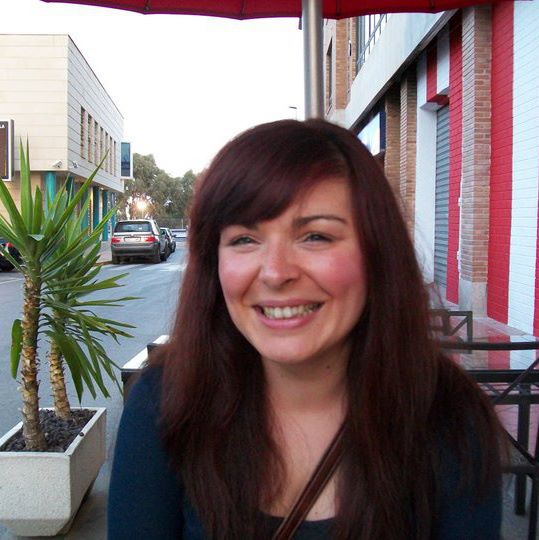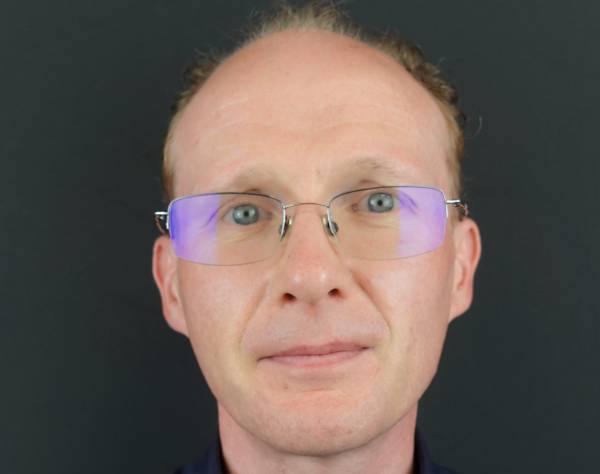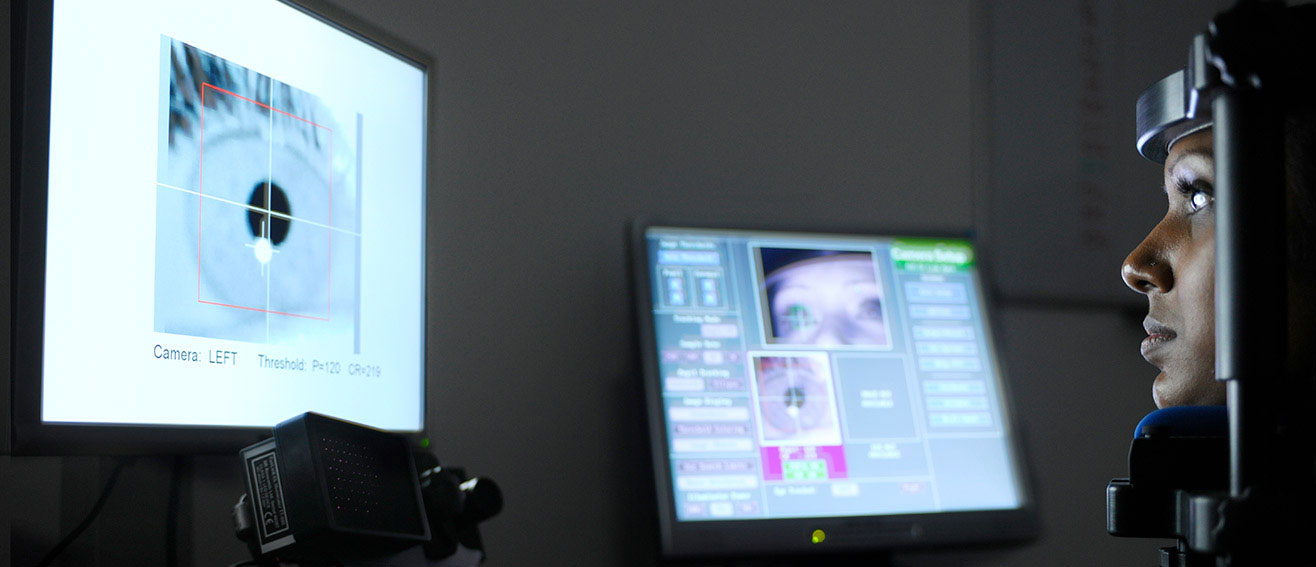Search our site...
Search module
Overview
What factors can explain changes in crime rates? How is climate change linked to the crimes of the powerful? Are prisons the appropriate response to criminal acts? Are we all treated equally before the law?
These are some of the issues that you will explore in this course, looking at the complex interactions between the state, the offender, the victim and society. You will think critically about how laws are made and how social structures shape both crime and responses to crime.
In addition to engaging with criminological theories and topical crime and justice issues, this course provides you with a solid base of knowledge in Psychology and an understanding of human behaviour, feelings and interactions.
As a psychology and criminology student at LSBU, you will be able to engage in a series of employability events. This course open spathways to careers in a variety of settings including probation, policing, the prison service, NGOs, local authorities, the voluntary sector, youth offending teams, teaching, social work and administration.
The course is also linked to the LSBU Crime and Justice Research Group which organises a series of research seminars and public events throughout the year. You will be encouraged to attend and participate in these events to enhance your learning experience and meet with researchers, practitioners and campaigners.
Why Psychology at LSBU?
- poll
- We’re ranked 1st among London moderns for Graduate Prospects (Complete University Guide 2022) and 3rd among London moderns for Research Rating (Times Good University 2022)
- check-circle
- Our professional accreditation - all our BSc Psychology courses, and our MSc Psychology conversion course are accredited by The British Psychological Society.
- laptop
- Our dedicated facilities – Our lab complex includes an eye-tracking facility and observation room.
- globe
- All our full-time staff members are research active and are involved in Research Project supervision.
- user
- Support – all teaching staff are very dedicated to student experience and have office hours to answer questions about course material, and to personally tutor students.
 | ||
 |  |  |
| ModeFull-time | Duration3 years | Start dateSeptember | Application codeC8M9 | Application method UCAS |
| ModePart-time | Duration4.5 years | Start dateSeptember | Application code5221 | Application method Direct to LSBU |
| ModePart-time | Duration6 years | Start dateSeptember | Application code5255 | Application method Direct to LSBU |
Location
London South Bank University student union is located at 103 Borough Rd, London SE1 0AA.
If you are visiting our Southwark Campus, you may wish to use our downloadable campus map (PNG File 466 KB). For information on accessibility, see our DisabledGo access guides. See our location page for more details.
Entry Level Requirements
112 UCAS points
Or equivalent level 3 qualifications.
If you do not meet the entry criteria above we also review any previous skills, knowledge or experience you have gained outside of your education and are happy to talk through any extenuating circumstances you feel relevant.
Visit UCAS for guidance on the tariff.
Choose your country
Select country here:
Missing English and Maths qualifications?
If you do not have the required English and Maths qualifications needed to satisfy the entry requirements for this programme, we have courses available at our partner College that you can take to upskill in these areas. Find out more at South Bank College.
Advanced entry
If you have already completed some studies at another university, we may be able to consider you for advanced entry. Please see our advanced entry page for more information.
Course status
Accreditation and Course validation status
This course is validated by London South Bank University. Applications are being accepted.
United Kingdom
£9250
Tuition fees for home students
International
£15900
Tuition fees for international students
Tuition fees are subject to annual inflationary increases. Find out more about tuition fees for Undergraduate or Postgraduate courses.
-
Part-time
part-time
BSc (Hons) Psychology With Criminology (4.5 Years) (PT) - Year 1
UK fee: £5550 International fee: £9540 AOS/LSBU code: 5221 Session code: 1PS00 Total course fee: UK: £27750 International: £47700 BSc (Hons) Psychology With Criminology (6 Years) (PT) - Year 1
UK fee: £4625 International fee: £7950 AOS/LSBU code: 5255 Session code: 1PS00 Total course fee: UK: £27750 International: £47700 BSc (Hons) Psychology With Criminology (4.5 Years) (PT) - Year 2
UK fee: £5550 International fee: £9540 AOS/LSBU code: 5221 Session code: 2PS00 Total course fee: UK: £27750 International: £47700 BSc (Hons) Psychology With Criminology (6 Years) (PT) - Year 2
UK fee: £4625 International fee: £7950 AOS/LSBU code: 5255 Session code: 2PS00 Total course fee: UK: £27750 International: £47700 BSc (Hons) Psychology With Criminology (4.5 Years) (PT) - Year 3
UK fee: £5550 International fee: £9540 AOS/LSBU code: 5221 Session code: 3PS00 Total course fee: UK: £27750 International: £47700 BSc (Hons) Psychology With Criminology (6 Years) (PT) - Year 3
UK fee: £4625 International fee: £7950 AOS/LSBU code: 5255 Session code: 3PS00 Total course fee: UK: £27750 International: £47700 BSc (Hons) Psychology With Criminology (4.5 Years) (PT) - Year 4
UK fee: £5550 International fee: £9540 AOS/LSBU code: 5221 Session code: 4PS00 Total course fee: UK: £27750 International: £47700 BSc (Hons) Psychology With Criminology (6 Years) (PT) - Year 4
UK fee: £4625 International fee: £7950 AOS/LSBU code: 5255 Session code: 4PS00 Total course fee: UK: £27750 International: £47700 BSc (Hons) Psychology With Criminology (4.5 Years) (PT) - Year 5
UK fee: £5550 International fee: £9540 AOS/LSBU code: 5221 Session code: 5PS00 Total course fee: UK: £27750 International: £47700 BSc (Hons) Psychology With Criminology (6 Years) (PT) - Year 5
UK fee: £4625 International fee: £7950 AOS/LSBU code: 5255 Session code: 5PS00 Total course fee: UK: £27750 International: £47700 BSc (Hons) Psychology With Criminology (6 Years) (PT) - Year 6
UK fee: £4625 International fee: £7950 AOS/LSBU code: 5255 Session code: 6PS00 Total course fee: UK: £27750 International: £47700 -
Full-time
full-time
BSc (Hons) Psychology (FT) - Year 1
UK fee: £9250 International fee: £15900 AOS/LSBU code: 1086 Session code: 1FS02 Total course fee: UK: £27750 International: £47700 BSc (Hons) Psychology (FT) - Year 2
UK fee: £9250 International fee: £15900 AOS/LSBU code: 1086 Session code: 2FS02 Total course fee: UK: £27750 International: £47700 BSc (Hons) Psychology (FT) - Year 3
UK fee: £9250 International fee: £15900 AOS/LSBU code: 1086 Session code: 3FS02 Total course fee: UK: £27750 International: £47700
For more information, including how and when to pay, see our fees and funding section for undergraduate students.
Please check your fee status and whether you are considered a Home, EU or International student for fee-paying purposes and for our regulatory returns, by reading the UKCISA regulations.
See our Tuition Fees Regulations (PDF File 391 KB) and Refund Policy (PDF File 775 KB).
Possible fee changes
The University reserves the right to increase its fees in line with changes to legislation, regulation and any government guidance or decisions.
The fees for international students are reviewed annually and the University reserves the right to increase the tuition fees in line with the RPIX measure of inflation up to 4 per cent.
Scholarships
We offer several types of fee reduction through our scholarships and bursaries. Find the full list and other useful information on our scholarships page.
International students
The course is not currently open to international students.
International (non Home) applicants should follow our international how to apply guide.
Home
| Mode Full-time | Duration 3 years | Start date September | Application code C8M9 | Application method UCAS |
| Mode Part-time | Duration 4.5 years | Start date September | Application code 5221 | Application method Direct to LSBU |
| Mode Part-time | Duration 6 years | Start date September | Application code 5255 | Application method Direct to LSBU |
Accommodation
Once we have made you an offer, you can apply for accommodation. You can rent from LSBU and you’ll deal directly with the university, not third party providers. That means we can guarantee you options to suit all budgets, with clear tenancy agreements and all-inclusive rents that include insurance for your personal belongings, internet access in each bedroom and on-site laundry facilities.
Or, if you’d rather rent privately, we can give you a list of landlords – just ask our Accommodation Service.
Read more about applying for accommodation at LSBU.
Finance
You don't need to wait for a confirmed place on a course to start applying for student finance. Read how to pay your fees as an undergraduate student.
Prepare to start
Applicant events
After you’ve received your offer we’ll send you emails about events we run to help you prepare for your course.
Suggested reading list
These books will give you a good idea of the breadth of Psychology as a discipline and will heighten your awareness of the theoretical and methodological issues to be covered during the course of your degree studies:
- Hock, R. R. (2012). Forty studies that changed psychology (7th ed.). Upper Saddle River, NJ: Pearson Prentice Hall. ISBN: 978-0205927333.
- Stanovich, K. E. (2009). How to think straight about psychology (9th ed.). Boston: Pearson Allyn and Bacon. ISBN: 978-0205760923.
This course integrates core areas of psychological knowledge, giving you a deep understanding of the subject. Taught with an applied focus, it will also help you apply your learning in the real world to make a difference to people's lives. The criminology-focused modules are delivered by staff from the School of Law and Social Sciences.
Year 1
- Psychological research methods 1
This module provides students with an introduction to the study of Psychology as a science. It does this via the study of some of the key conceptual, methodological, and statistical issues that psychologists face when studying human behaviour. As well as issues surrounding experimental design and ethical principles in psychological research, the module also introduces the ways in which descriptive and inferential statistics can be used to analyse and make sense of experimental data. - Introducing psychological approaches
This module introduces students to the study of psychology, first by discussing its conceptual underpinnings and historical development and then topics related to living in the world as biological, learning and feeling beings. Block 1 focuses on the philosophical foundations of Psychology, its status as a science and current identity, while Block 2 covers learning from the environment and from others. Block 3 includes evolutionary theory and the relationship of the brain to behaviour and Block 4 covers emotions from biological, psychological and social perspectives. The module provides the knowledge-base necessary for advanced study at level 5 and also the development of skills relating to factual learning, i.e., accessing, organising, assimilating and revising information. - Psychological research methods 2
The module introduces students to qualitative research methods. Several lectures and seminars are dedicated to developing understanding of qualitative methods and conducting a qualitative analysis. The remainder of the module considers additional quantitative research designs and statistical analyses using SPSS. The module is assessed by two practical reports: one focused on qualitative methods, and one focused on quantitative methods. - Exploring psychological approaches
This module introduces topics related to living in the world as a developing, thinking, social and individual being. Topics will include memory, perception, attention, cognitive development, interpersonal behaviour, group behaviour, intelligence, personality and aspects of atypical behaviour. Study in each of these will provide a framework for advanced study at level 5. In addition to knowledge, the module will provide the opportunity for students to develop skills relating to accessing, assimilating and communicating information as well as to be introduced to an assessment technique that will be encountered on the course. - Deconstructing the crime problem
What is crime? How and to what extent is the crime problem dispersed throughout contemporary British society? What do we know about current levels of crime in the UK and how do these compare historically? These are some of the key questions you'll address in this module which introduces you to the basic anatomy of the crime problem. In addition to addressing specific questions concerning trends in different types of crime and social distribution of crime across society, you'll be encouraged to think about these issues in terms of broader social trends and relations. - Understanding Crime: Criminological Theory in Context
What is crime? Why are some actions considered crimes and not others? How can we explain crime - what causes or encourages it? Should we even bother trying to explain it, or should we just focus on preventing crime through the right punishment system? When thinking about our response to crime should we focus on punishment or rehabilitation? Who commits crime? Who defines crime? Do people with power define crime and its punishments to suit them? These are the kinds of questions that mean you have to think about the different theories of crime. There is no simple answer but only competing theories which we have to get to know and maybe take the bits that we agree with for a wider and more sophisticated understanding of that fascinating and crucial subject....crime. This module will introduce you to several different perspectives or theories on how to think about crime.
Year 2
- Psychological research methods 3
This module builds on the simple experimental designs covered in the first year (comparing two means) and moves on to single factor and multifactor experiments, their design and the relevant analyses. Students are also introduced to aspects of psychometric testing and test indices. Lectures provide the conceptual framework required for an understanding of research methodology and their supporting statistical tests. Lectures are supported by seminars which help students learn design analysis, data analysis using SPSS and the interpretation of the results of experiments taken from the psychology literature. The module also provides students with the opportunity to design, execute, analyse and report results from practical work. - The psychology of learning and memory
Students studying this module will explore three themes, considering them in their own right and also in the light of their development from infancy through to adulthood. Firstly, how we gather and process information from the world around us, covering perception and attention processes. Secondly, how we remember what we have experienced, covering the cognitive and biological machinery underlying short-term and long-term memory structures and how our socio-cultural milieu influences these processes. Thirdly, how we use this information to act in the world, highlighting the ways in which we learn from the information that we have gathered from our environment. - The psychology of feelings
This module provides students with the opportunity to explore the interdependence between feelings and human behaviour. The module is organised into three distinct themes, relationships, mood and sensations. Within each theme a range of topics will be explored drawing on theory and research from biological, developmental, evolutionary, cross-cultural, cognitive and social psychology. Individual differences will be a key perspective in this module. - Psychological research methods 4
Students will be introduced to multivariate research designs in the first component of this module, and will conduct and report a piece of research using multiple regression. The second component develops students’ knowledge of thematic analysis, and allows them to carry out and report a study using this method. Students will then be allocated to specialist research methods streams. This component will give students an opportunity to gain a more in depth understanding of a specific complex research methodology and its practical application. - The psychology of behaviour with others
This module provides students with the opportunity to explore a number of the major concepts, theories and methods encountered in understanding how and why we behave in the ways we do when in the presence of other humans. The focus of this module is to understand what psychologists have contributed to understanding our social behaviours according to the real, imagined or implied presence of other individuals. The module focuses on those approaches that have been used to examine a) whether we are social beings and why, b) what the ‘social’ brain looks like, c) how social behaviours develop across the lifespan, d) which mechanisms have been used to explain how we interact with the implied, real or imagined presence of others, e) how culture affects our social interactions, and f) how group membership affects our social behaviours. - The psychology of thinking and communication
This module provides students with the opportunity to explore and critically evaluate a number of the major concepts, theories and methods encountered in understanding how we communicate with others, solve problems and make decisions. This module will help students to understand the development of human communication, both cognitive and social. Students will learn what different psychologists think intelligence is, how it develops, and how it can be measured. The module will explore the internal and external influences on the development of reasoning and decision making. The module will explore whether innate mechanisms underlie these capacities or whether they develop over time.
Year 3
- New Module in development: Psychology professional practice and project
The module requires students to design and implement a substantial piece of independent psychological research related to clinical psychology and to produce an extensive report on the project. All students are supervised by a permanent member of academic staff. Students will also engage with reflection on their learning to date, and placement/work based learning. - Contemporary Criminology
This module examines, in depth, contemporary and specific areas of criminological debate and theory. The module adopts a flexible design in response to current developments in the field of criminology and in the context of current social and political problems. You will be encouraged to critically explore topics within the area and apply them to wider criminological debate and theory. - Gender, crime and justice
An understanding of both masculinities and femininities is central to this module. You'll draw on feminist perspectives in criminological theory as well as more mainstream theoretical accounts. You'll evaluate the evidence which indicates that patterns of offending, victimisation and the workings of the main criminal justice agencies are gendered. This module also transgresses traditional debates in this area by considering a human rights perspective for the study of gender and crime.
Plus two options from:
Please note option modules may vary, and we cannot guarantee specific modules will be delivered.
- Psychology of mental health and distress
Mental health is a highly contested area, with major disagreements amongst psychiatrists, psychologists and service users over the conceptualisation and treatment of mental health problems. This module will examine the theoretical differences between these perspectives, through examining the social, cultural, biological and psychological evidence for the causes and maintenance of mental distress. These factors will be looked at in general, and also in relation to specific forms of distress, such as psychosis, depression, eating disorders and anxiety. The value and efficacy of diagnostic versus formulation approaches for the treatment of mental health problems will also be explored. - Health psychology
Morbidity and mortality have been shown to be influenced significantly by various socio-demographic factors like age, social class and education. Which factors create the link between these inputs and health-related outputs is less clear. This module will explore theoretically based psychological processes and mechanisms (e.g. cognitive dispositions and beliefs, social support, etc) which have been shown to relate social inputs with health outcomes. In early sessions students will explore social inequalities in health. During later sessions a number of models used by health psychologists to study related decision making and behaviour will be explored. Throughout all sessions students will be exposed to applied implications and evidence derived from basic theoretical principles. - Development of brain and behaviour in infancy
This module focuses on infancy, a period of rapid development, and examines the emergence of perceptual, cognitive, and early social skills during the first year of life. Emerging behaviours will also be related to brain development, to facilitate a more thorough investigation of what happens during development. Traditional and more recent methods used to assess both brain and behaviour in infants will also be considered. This module also offers the opportunity to consider dominant debates in developmental psychology, including the relative contributions of nature and nurture to development, and plasticity in the developing brain. The module focuses on both typical and atypical development, and also considers long term impacts of early experience. There is a focus on real world applications of the material covered in the module. - Psychology of inter- and intra- group processes
This module will begin by outlining key issues in the study of intergroup and intra group psychology and explore social identity approaches. The module then goes on to consider how groups interact with one another (inter-group processes) and also how group members function within the group (intra-group processes). The module combines basic and theory with real social applications. Seminars provide an opportunity to explore issues and research in more depth, and apply theory to real life situations. As well summative assessment via an essay and a set of short answer questions, students will also be required to make a short group presentation as formative assessment. - Psychology of addictive behaviours
This module introduces final year students to theories of addictive behaviour. Conceptual issues surrounding the utility of theories will be addressed, and the empirical evidence for or against each theory will be discussed. Students will have the opportunity to consider recent theories which attempt to synthesise extant models into a comprehensive account of addiction. Students will have the opportunity to apply, and critically evaluate, a number of theories in regards to their ability to explain alcoholism and/or tobacco smoking, both during seminars and in their coursework assignment. Finally, various treatment and preventative approaches, and the evidence for and against each will be examined. - Applied psychometrics
This module will begin by explaining test construction and validation in detail. The module then goes on to consider a wide variety of psychometric tests available and their appropriateness for use in occupational, clinical and research psychology. Ethical and legal issues surrounding psychometric test use will be covered. Students will gain practical experience of psychometric test use. - Neuropsychology
This module centres on the study of brain-behaviour relationships. The focus of the module is to outline a series of disorders and the study of how they impact cognitive functions. Specifically, the module provides students with an understanding of the neural underpinnings of several cognitive functions and how these can be disrupted in a series of disorders. Students are also introduced to methods used in neuropsychology and cognitive neuroscience and issues around recovery and rehabilitation. The module is delivered over 11 weeks, with each lecture followed by a seminar. - Counselling psychology and psychotherapy
This module is designed primarily for students intending to go on to counselling psychology and psychotherapy postgraduate courses following their degree. Each week includes theoretical and practical components where students are able to try out various approaches in role-plays and triad work. The theoretical component of the module introduces students to key theoretical approaches in counselling psychology and psychotherapy (focusing on humanist/existential and cognitive behavioural) as well as covering various types of therapy (one-to-one, brief therapy, narrative therapy, group based and family therapy). There is a critical emphasis throughout considering issues of power, ethics, difference, and research on therapeutic effectiveness and processes. - Psychopharmacology
This module focuses on the scientific study of how drugs affect brain function and how such research furthers our understanding of the biological mechanisms underlying behaviour. Topics covered in this module include recreational and abusive use of drugs, cognitive enhancing drugs, the cannabinoid system and the therapeutic potential of cannabis, nicotine and in-depth coverage of the drugs used to treat schizophrenia, anxiety and mood disorders. In these last three lectures, we will look at the use of animals in drug development in clinical psychopharmacology and discuss future avenues of research to develop more acceptable medications for mental health problems. - Thinking: Past, present and future
Cognitive Science is the scientific study of thought. This module provides students with the opportunity to explore some of the key theoretical debates in contemporary cognitive science, adopting a multidisciplinary approach to understanding the nature of thought and challenging assumptions concerning what it is to be human. The module will address the nature of the human mind in the past, present, and future, frequently using comparative psychology to identify those abilities that make us uniquely human and which mark us out from non-human animals and synthetic organisms. - Lifespan development
This module extends the usual focus of developmental psychology on infancy and childhood to consider a range of factors in development over the lifespan. Issues relating to social, emotional, and cognitive development through childhood and into adolescence will be considered, as will the transition from adolescence into early adulthood. Factors surrounding relationships between children’s drawing and cognitive development will be addressed, together with moral development. The continued impact of developmental disorders (such as dyslexia) in adulthood will be considered, linking these to cognitive function in everyday life (such as educational and employment settings). Typical ageing and neurodegenerative disorders (such as Alzheimer’s disease and Parkinson’s disease) will be considered from both social and cognitive perspectives. - Psychology in the workplace
The Psychology in the Workplace module will cover a range of different topics related to work (or industrial) psychology, cognitive ergonomics, and behaviour in organisational settings. In broad terms, the module will cover issues relating to organisations, individual workers, and inclusive practices It will address such topics as organisational change, the challenge of an ageing workforce, human-machine interaction, stress and work, human error and accident prevention, and designing workplaces and tools for workers with additional needs or in different cultures. - Psychology of the Performing Arts
This module will explore the psychology of theatre, music, and dance arts. Students will be introduced to a variety of topics including, actors’ approaches to the script and inhabiting character, actors’ mental health, equality and diversity in the arts, memory and acting, embodied cognition, music psychology from the audience and the performers’ perspectives, dance psychology (e.g. body / rhythm synchronisation) and drama and music as therapy. These topics will relate to key areas in Psychology, including occupational psychology (e.g. job motivations, security), clinical psychology (e.g. actors’ mental health, performance anxiety), cognitive psychology (e.g. script-work and memory), cognitive neuroscience (e.g. music expectations and emotions, rhythm and synchronisation) and issues of equality and diversity (e.g. “blind casting”, gender pay-gap, harassment). - Sex gender relationships
This module explores the sex-gender paradigm, sex-and-sexuality, family, and diverse relationship structures through psychological approaches. Engagement extends core Psychology learning-and-teaching on knowledge and learning, feelings, emotions, behaviours, decision-making, identities, biology, human development, and lived experience. Students engage critically with historical and socio-cultural changes, contemporary debates, and applied contexts through a pedagogy of co-production that leverages diversity of student interests. Psychological, therapeutic, queer-theory and feminist literature are surveyed through a mix of traditional lectures and ‘flipped classroom’ discussion and debate. - Psychology in the Criminal Justice system
This module covers various aspects of forensic psychology relating to understanding criminal behaviour, investigative methods and trial processes. More specifically, the lectures will relate to psychological theories of crime, eyewitness testimonies, investigative interviewing and offender profiling, decision making in court and dealing with offenders. Students are expected to critically evaluate research findings and demonstrate an understanding of how these findings are/can be applied in practice as well as communicating them to practitioners and laypeople. - Clinical Approaches in Forensic Psychology
This module aims to examine the application of psychological knowledge to the understanding of, and care for, individuals that have offended. This module begins by providing an insight into the role of a forensic psychologist, before focusing on reasons why an individual offends across various offence typologies (e.g., sexual offending, street gang membership, firesetting, and intimate partner violence). The role of risk assessment in planning interventions and release will be explored, with the impact of forensic care on service user’s wellbeing emphasised. Approaches to interventions/rehabilitation will be discussed, including imprisonment, risk- and strengths-focused frameworks and creative therapies. Finally, the importance of evidence-based practice in forensic care will be examined. Seminars provide an opportunity to discuss the different reasons why an individual offends and what intervention approaches would be most effective for different clients.
Careers
Employability Service
At LSBU, we want to set you up for a successful career. During your studies – and for two years after you graduate – you’ll have access to our Employability Service, which includes:
- An online board where you can see a wide range of placements: part-time, full-time or voluntary. You can also drop in to see our Job Shop advisers, who are always available to help you take the next step in your search.
- Our Careers Gym offering group workshops on CVs, interview techniques and finding work experience, as well as regular presentations from employers across a range of sectors.
Our Student Enterprise team can also help you start your own business and develop valuable entrepreneurial skills.
As well as enhancing your understanding of human behaviour and thought processes, this course will help you become a more persuasive communicator - a desirable skill for employers.
Your career
With an accredited degree and an appropriate postgraduate qualification you could go on to be a chartered psychologist in health, clinical, forensic, child and educational or occupational psychology. You’re also equipped for a career in counselling, teaching, the probation and courts services, market research, HR or business – there’s no such thing as a traditional career path for psychology graduates.
If you do go on to become a chartered psychologist, your everyday duties would vary depending on the speciality. An occupational psychologist works to maximise employee performance and increase job satisfaction; a clinical psychologist makes positive changes in clients’ lives.
Chartered Psychologists in the NHS can earn £25,500-£34,000 a year, rising to £40k+ with experience.
Our degrees are accredited by the British Psychology Society (BPS). This meets the requirements for Graduate Basis for Registration (GBR). With GBR, you can undertake Masters/Doctoral level study leading to Chartered Membership of the BPS. You’ll need at least a Lower Second Honours degree to be eligible for GBR.

- Established for 110 years The British Psychological Society promotes excellence and ethical practice in the science, education and practical application of psychology.
Placements
It’s a good idea to look for voluntary or paid placements as soon as you can – we’ll support you in this. You can also undertake an assessed placement in your final year of study.
Teaching and Assessment
Assessment
We use a range of assessment methods, and train you in these methods as you advance through your studies. The methods used are:
- Essays
- Practical reports
- Unseen exams
- Multiple choice questions
- Scenario-based reports
- Case studies
- Posters
- Executive reports
- Portfolios
- Group work folders
Research
Our impressive research record (over 95% of our publications were rated at the 'international' level in REF 2021) means that teaching is informed by current, cutting-edge research, and because we have a focus on applied research, you can apply your learning to real world settings.
Support
We aim to support you throughout your studies in many ways. We provide one-to-one support via our academic tutoring system. Your academic tutor will help you understand coursework feedback, offer guidance as you plan your career, and advise you on work experience to ensure you get the most out of the course. Teaching is also supported through seminars, online learning environments and specialist advice sessions for topics such as statistics and research methods. In addition to the facilities provided by the university, the psychology laboratory has dedicated computing and experimental equipment.
| Time spent in lectures, seminars and practical study | Self-directed learning | |
|---|---|---|
| Year 1 | 20% | 80% |
| Year 2 | 22% | 78% |
| Year 3 | 14% | 86% |
Academic tutoring
As an Applied Sciences student, you will be allocated a named academic tutor during your first three weeks at LSBU. The role of your academic tutor is to be your primary contact for academic and professional development support.
Your academic tutor will support you to get the most of your time at LSBU, providing advice and signposting to other sources of support in the University.
Your academic tutor should be the first person at the university that you speak to if you are having any difficulties that are affecting your work. These could be academic, financial, health-related or another type of problem.
You will have appointments with your academic tutor a minimum of once per semester for 30 minutes throughout your course. This is often supplemented with additional meetings arranged via email as and when students need support. In addition to this Learning Support hours for all teaching staff will be advertised and available for you to book additional time for support related to a specific teaching session.
People profiles
-
Mr Richard Batty
Applied Sciences -

Miss Emke Brazier
Applied Sciences -

Miss Emke Susan Evelyn Brazier
Applied Sciences -

Dr Janice Brown
Applied Sciences -

Ms Donna Ciarlo
Applied Sciences -

Professor Lynne Dawkins
Applied Sciences -

Dr Catherine Kimber
Applied Sciences -

Dr Dan Kolubinski
Applied Sciences -

Dr Elisa Lewis
Applied Sciences -

Dr Jaimee Mallion
Applied Sciences -

Dr Elizabeth Newton
Applied Sciences -

Dr Preethi Premkumar
Applied Sciences -

Professor Paula Reavey
Applied Sciences -

Dr Nicky Rycroft
Applied Sciences -

Dr James Smith-Spark
Applied Sciences -

Dr Serra Tekin Eriksson
Applied Sciences -

Dr Allan Tyler
Applied Sciences


